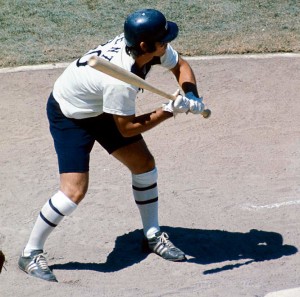
Innovative: a product or idea featuring new methods; advanced and original. (Google Dictionary).
Shocking Pedagogy
As I lead Project Based Learning workshops around the country, I have noticed a shift in how it is received by teachers. Years ago when I first started leading PBL professional development, it felt like a huge transformation. The first day of the workshop was dedicated to listening to people’s misconceptions and “selling” PBL to convince skeptics that it was worth trying. On the second day of the workshop, I would reassure overwhelmed teachers that they could, in fact, successfully implement PBL. Tears of frustration were not uncommon. Many participants felt that they were being asked to make seismic shifts of their teaching practices. By the end of day three, teachers were both convinced and equipped to step out into the wild frontier of Project Based Learning.
At one workshop, I remember a history teacher planned a project based on interviewing veterans, a common project idea done by many teachers across the country. Another teacher challenged him and said it wasn’t PBL because the idea wasn’t original. This teacher thought that every project had to be unique and never attempted before. He was caught in the fallacy of PBL as innovation. I assured both of the teachers that is was ok to adapt existing projects to their content and classroom.
Shift to Affirmation
More recently, the workshop participants react differently. The first day of the workshop still begins with many misconceptions about what PBL is and isn’t. But the reactions are different. I rarely have to convince people that PBL is based on solid educational practices anymore. People no longer are in tears, feeling stressed about changing. Instead of being shocked about proposed shifts to their practice, teachers are affirmed.
Once teachers are shown what PBL is, no longer do the majority of them feel that it is something totally new and innovative. When they look at the elements of PBL, educators realize that they are already using many of the strategies. They already have students looking at big questions and discussing them. Many teachers have already experimented with dessert projects. Teachers know about formative assessments, reflection, and scaffolding content for different learners.
So in fact, PBL isn’t and never has been innovative. This is coming from someone who gained their PBL chops in a school that literally had innovation in its name. There was a time when PBL felt innovative to teachers trapped in traditional teaching of sit, git, and forget. But that was all relative to their circumstance of content above all (pressure of standardization and testing). Now the education pendulum is swinging back to a more holistic approach.
The goal of PBL teaching and learning is not to be the most innovative kind of instruction, but to make content meaningful to kids.
The PBL framework has roots in John Dewey, Constructivism, Vygotsky’s Zone of Proximal Development, Montessori, and Reggio Emilia models to name a few. PBL introduces students to intriguing questions, and the teacher coaches them through an inquiry process. The coaching and mentoring harken back to Ancient Greece and Jesus. The only innovation that modern educators have done with PBL is to systemize and refine how to do it well.
Path Forward
PBL, when properly understood, is a mindset of student-centered learning based on best teaching and learning theory. Historically, PBL is not new or innovative in the least. More importantly, today PBL no longer feels innovative to most teachers because positive shifts have been made to decentralize learning in many schools and classrooms.
So why even bother with a PBL workshop if it is not innovative, only affirming? Because many teachers still lack the tools to do it effectively. The PBL model adds a systemic structure for student-centered learning. It ensures intentional implementation of the strategies that we know all students need. Even for the seasoned teacher, a workshop adds more tools in the form of protocols to ensure social, emotional, and academic success for all students.
Questions? Interested in SEL and PBL Consulting? Connect with me at michaelkaechele.com or @mikekaechele onTwitter.

